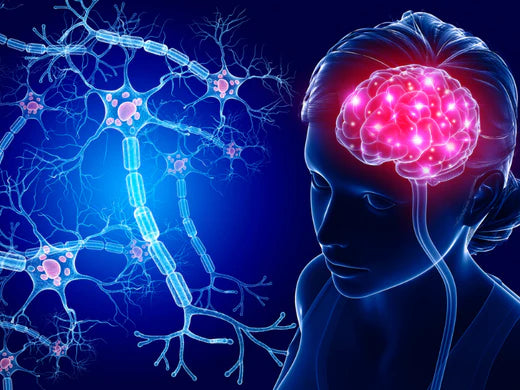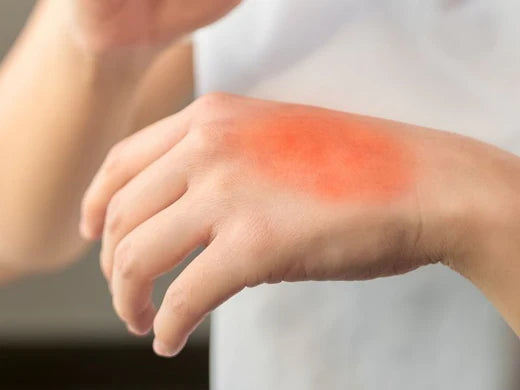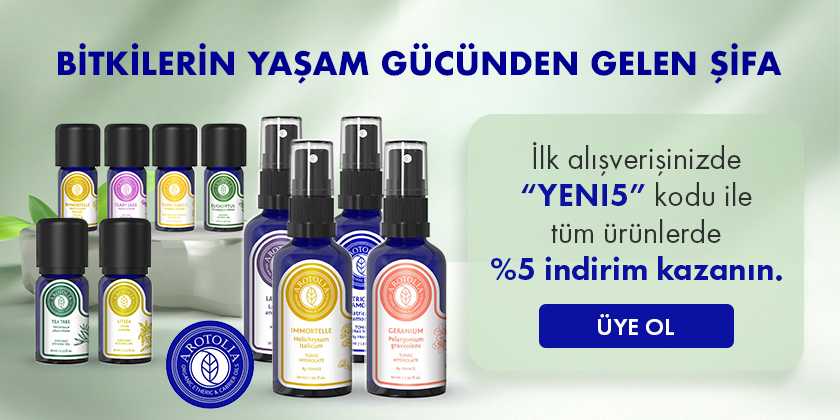
Essential Oils Affect Your Nervous System - But How?
The secretion of essential oils is a result of the defense mechanisms of aromatic plants. The chemical composition of essential oils can vary considerably depending on many factors, such as the conditions of the aromatic part of the plant, geographical location, extraction method and time.
Numerous studies have confirmed the effects of these oils on mental health, such as antidepressant effects, attention and cognitive development, and memory improvement. You may have read suggestions such as "Essential oils affect the nervous system" in many places, including this blog. Most of the time, it can remain in the air because it is not fully understood how this effect works. In academic publications, it is explained through countless intertwined scientific terms. Our body, our systems, and even each of our cells are quite complex. All of our organs, hormones, receptors, and the chemicals we secrete... work in harmony and interaction with each other. Therefore, it is a complex process that an essential oil passes through these paths.
Today, I will try to explain what happens after inhaling an essential oil, by simplifying it as much as possible and explaining all the links in the chain. (You can review the sources for more detailed information.)
In mammals, the HPA axis (hypothalamic-pituitary-adrenal axis), that is, the hypothalamus region of the brain; is responsible for the vagus nerve and the central nervous system's response to stress. ACTH hormone is a hormone produced by the body in response to stress. The secretion of this hormone in response to stress factors also triggers the release of cortisol (glucocorticoids) in humans. Secreted cortisols, together with some hormones (acetylcholine secreted by the vagus nerve), show anti-inflammatory effects after certain cellular events. In addition, in situations such as acute stress resulting from a traumatic event, cortisol increases serotonin reuptake. Serotonin affects our mood and makes us feel good. Under normal conditions, it is released during neural transmission and then reabsorbed by the cell. While serotonin and other neurotransmitters are naturally produced in the brain, this amount decreases considerably in psychiatric disorders and our mood is negatively affected by this. The working principle of antidepressants is basically to prevent the reabsorption of these neurotransmitters. In this way, serotonin and others continue to remain outside the cell. Preventing reabsorption during the period when natural production by the brain is low makes the person feel good. At this point, cortisols act like antidepressants.
The central nervous system consists of sympathetic and parasympathetic nerves. Another element activated by stress factors is the response of the sympathetic nervous system. As a result of this response, adrenaline and noradrenaline are secreted, respectively. Adrenaline is a hormone and is secreted directly into the veins, that is, the bloodstream, and ensures that certain signals are made. Noradrenaline, on the other hand, is a neurotransmitter and does not mix with the blood, but carries out its signaling function through neurons. Both adrenaline and noradrenaline activate cytokine release. Cytokines are proteins responsible for the communication between cells. These cytokines can show their effects by stimulating the vagus nerve (the vagus nerve transmits information about mood to the brain) or by reaching the brain through active molecules and passing through the blood-brain barrier. This effect changes the metabolism of some neurotransmitters (serotonin, dopamine), the irregularity of which is associated with depression. Therefore, activation of the cytokine leads to emotional and behavioral changes that can result in depression.
Essential oils trigger certain responses in the central nervous system to stress. For example, calming essential oils regulate the release of cortisol and affect the HPA axis as described above.
In recent years, the increase in experiments examining the pharmacology of essential oils has revealed a wide variety of neural pathways in their mechanisms of action. Inhalation of these oils has been observed to cause changes in cortisol levels and brain waves. We discussed the biological interpretation of these changes above. The individual interpretation is that participants report relaxation, contentment and vitality.
In addition, according to the researchers of this study, essential oils affect the nervous system without causing side effects, unlike synthetic drugs. This shows that essential oils are a potential alternative for the treatment of mental illnesses such as depression, anxiety, and dementia. However, they still say that more clinical research is needed to develop essential oil-based drugs due to the synergistic effects of essential oils.
SOURCE
https://evrimagaci.org/antidepresanlarin-calisma-mekanizmasi-3719
https://evrimagaci.org/adrenalin-epinefrin-ve-noradrenalin-norepinefrin-nedir-aralarindanasil- bir-iliski-vardir-3844
Effects of essential oils on central nervous system: Focus on mental health, Lorena R. Lizarraga-Valderrama, 2020



